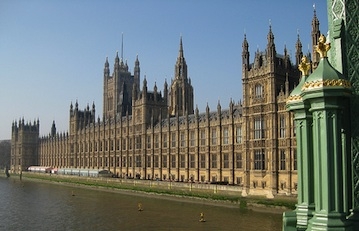The Government has this morning effectively put on ice the planned cuts to the Money Purchase Annual Allowance.
The move has come as part of the process of the Finance Bill going through Parliament.
The House of Commons papers showed the intention to leave out the MPAA cut from the Bill. It was supposed to be reduced from £10,000 to £4,000 a year.
It has triggered debate among pension experts as to whether it could end up being axed or whether it will prove to be simply a deferral.
Richard Parkin, head of pensions policy at Fidelity International believes it is not likely to be “a change of heart but rather political expediency” in order to get the essential clauses of the Finance Bill through Parliament before it dissolves on 3 May.
He said: “I’d love to believe that government has changed its mind on the MPAA reduction but it seems that it’s just a temporary casualty of the pre-election wash up period. However, because Parliament is being dissolved the bill can’t carry over and a new bill will need to be introduced after the election. That at least gives the opportunity for government to rethink this policy which we believe will have a negative impact on those saving responsibly for their retirement. Indeed, HM Treasury has since confirmed that they have no evidence of the abuse that this measure was intended to curtail. Fidelity reiterates its commitment to work with government and industry to find a better solution.”
Claire Trott, head of pensions strategy, Technical Connection, said: “It isn’t a surprise that some changes announced in the Spring Budget may be put on hold because of the snap general election, some of this will be welcomed in the grand scheme of things but it does make planning very difficult. Advisers will have told clients to opt out of some schemes or cut back on contributions because it was believed that the MPAA would be cut to £4,000 but this appears unlikely now with the rush to get the Finance Bill through before the election.
“This doesn’t mean it won’t happen but it will need to go in the next Finance Bill which will take time and can’t really be back dated to the beginning of the tax year. This and other changes will leave clients and advisers in limbo again which really isn’t helpful for anyone.”
Martin Tilley, director of Technical Services, Dentons Pension Management, said: “Once again this is not a good message to be sending to the electorate. The government ran a consultation, reflected on responses and announced they were going ahead with the cut at the Spring Budget. Advisers have advised clients and decisions and actions may have been taken based on the budget announcement.
“To put this on hold and potentially U-turn on the announcement I'm afraid shows a lack of understanding of what this constant tinkering does to consumer confidence and disincentivises many to invest in pensions at all.
“Long term planning needs long term strategic thinking, not short term knee jerk political policies.”
Rachel Vahey, product technical manager at Nucleus, said today’s news does not necessarily mean this policy has been dropped, or ‘u-turned’.
She said: “We are in extraordinary times, and the Treasury needs to make sure the Finance Bill can receive Royal Assent before the General Election. Keeping MPAA at £10,000 could be a final decision, or it could a temporary situation, until the legislation can be pushed through after the General Election.
“We now, as a matter of urgency, need clarification from the Treasury. Advisers have been working with their clients on how to adjust to a much lower MPAA, and advisers and providers have changed processes and literature. The likelihood is this is a delay to the reduction in MPAA, but we need to know this for sure. In the meantime, we are all – advisers, clients and providers - left in limbo.
“The legislative clauses to be left out not only include MPAA, but also the new pension advice allowance and the reduction to the dividend-free allowance to £2,000 a year.”
Jon Greer, pensions expert at Old Mutual Wealth, said: “The hiatus on the reduction to the Money Purchase Annual Allowance causes confusion, particularly since the policy has been implemented since the beginning of April. While placing part of the finance bill on hold was inevitable with the announcement of the snap election, the government are reducing it to the bare bones in order to get it through.
“People will have already started planning for this change and a sensible approach would be to continue to do so as it may be backdated and still be applicable from April 6 this year.
“However, the cut to the MPAA is totally at odds with the direction of travel in the retirement market and those planning for retirement would be relieved if it became a casualty of the finance bill.”

